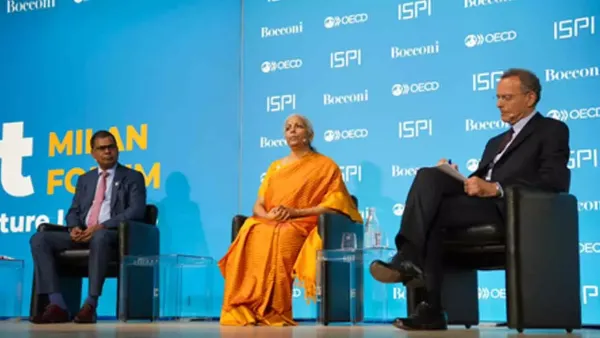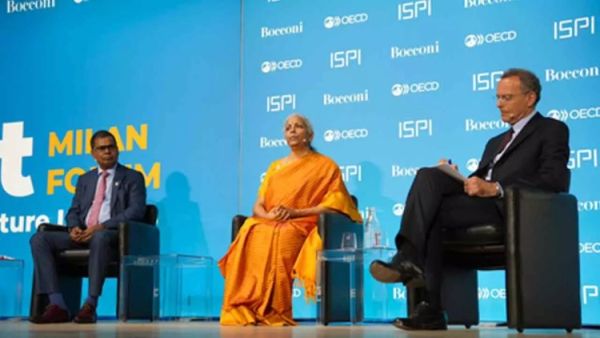
According to Finance Minister Nirmala Sitharaman, the India-UK free trade agreement (FTA) marks the beginning of a new era in commerce between the two nations. On Tuesday, Prime Minister Narendra Modi and his UK counterpart, Sir Keir Starmer, hailed the successful completion of a mutually beneficial free trade agreement between India and the UK, which would result in zero tariffs on 99 percent of Indian exports.

FM Sitharaman said in a post on the social networking site X that India would be a development engine under PM Modi’s direction.
“Indian exporters would have more market access thanks to this arrangement. Innovation and industries may thrive,” the finance minister said.
Today, signing bilateral agreements is the main task. During a plenary session of the “NEXT Milan Forum” at Bocconi University in Milan, Italy, she said, “Multilateral agreements were in vogue for a while, but it appears that now is the time for nations to make their own bilateral arrangements.” The FTA takes place against the background of expanding economic ties between the UK and India, as seen by the roughly $60 billion in bilateral commerce that is expected to quadruple by 2030.
The result of rigorous talks, this comprehensive and forward-looking agreement aims to strengthen trade and investment links across a variety of industries, including technology, products, and services. According to the government, it is intended to create high-quality jobs in India, guarantee robust supply chains, and encourage sustainable and equitable economic development.
All of India’s export interests are covered by the FTA, which guarantees complete market access for products in all industries. The removal of tariffs on almost 99 percent of the tariff lines, which account for over 100 percent of the trade value, would benefit India and provide enormous prospects for growing bilateral trade between the UK and India.
India will gain access to new possibilities and employment thanks to the UK’s most ambitious free trade agreements in areas including IT/ITeS, financial services, professional services, other business services, and education.
For a duration of three years, Indian workers and their employers are exempt from paying social security contributions in the UK under the Double Contribution Convention. This will result in substantial financial benefits for Indian service providers and increase their competitiveness in the UK market, which will benefit many Indians employed in the UK and open up new job opportunities.